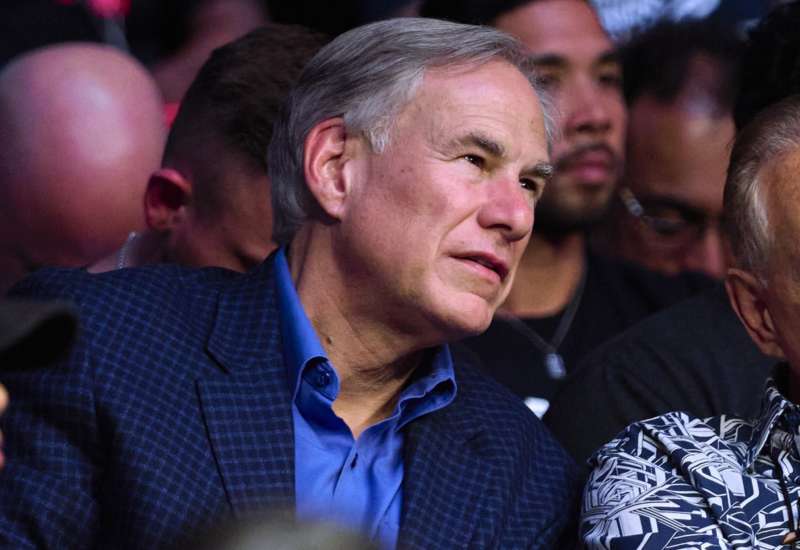A number of Republican governors are pushing treatment options for the coronavirus while ignoring or downplaying preventive measures that could reduce infections and hospitalizations in more effective ways, including vaccinations and wearing masks.
Politico reports that tens of millions of dollars are being invested by Govs. Ron DeSantis (R-Florida), Mike Parson (R-Missouri) and Greg Abbott (R-Texas) for monoclonal antibody treatments for those who have tested positive for COVID-19. One of the governors, DeSantis, has been touting the treatment across his state, while another, Abbott, is receiving the rare treatment himself after recently testing positive for the virus.
These types of treatments are effective means for preventing hospitalization and even death from the virus — up to 70 percent more effective than not getting the treatment, studies have shown — but they are more costly and less effective than precautionary vaccines in terms of reducing the need for hospitalization if infected by the virus.
The costs of either the treatment or the vaccinations are not being passed on to those seeking them. Rather, governments have largely been absorbing the costs of both. But while the Regeneron version of the monoclonal antibody treatment costs around $2,100 per dose, the Pfizer-BioNTech vaccine for protection against coronavirus costs less than $20 per shot.
And while monoclonal antibody treatments are 70 percent effective in reducing hospitalizations, getting vaccinated reduces the chances of contracting the virus in the first place. Additionally, 95 percent of those who are vaccinated but still contract COVID will not require hospitalization, studies have demonstrated.
Some local officials have said that the focus on treatment rather than prevention is the wrong path to take.
“You’re having this discussion about [infusion] centers that can be avoided if we get people vaccinated,” Kansas City Mayor Quinton Lucas said.
While the three governors have not directly discouraged people from getting vaccinated, they have not been promoting vaccinations as strongly as many had hoped, especially given that the vaccination rates in all three states are below 21 other states, including Washington, D.C. Two of the governors, DeSantis and Abbott, have imposed bans on local governments, including school districts, from implementing rules on facial coverings to reduce the spread of the virus, while Parson has been vocal in his opposition to local mask mandates in his home state.
Taken together, the three states represent a high proportion of the nation’s daily coronavirus infections being reported. On August 17, for example, more than 259,000 new COVID cases were reported in the United States. Case counts in Missouri, Florida and Texas accounted for nearly 50,000 of those, just shy of the one-fifth mark for all new cases seen across the nation on that day.
Reporting from The Associated Press this week highlighted the potential conflict of interest that one of these governors may have in promoting the antibody treatment while downplaying the vaccines and masking. DeSantis has received more than $10 million in campaign support from a CEO of a hedge-fund that has also invested more than $15 million in Regeneron.
“Experts agree that keeping people out of the hospital is a top priority, but say vaccines — not treatments for people after they get sick — are the best way to do that,” journalist Brendan Farrington wrote.
After The AP report from Farrington, DeSantis’s press secretary Christina Pushaw targeted the journalist on Twitter, telling him she was putting him “on blast” for producing an article she said was misleading, although nothing in Farrington’s piece appeared to be inaccurate. Her multiple tweets against Farrington, however, including one where she allegedly told her followers to “drag” him, resulted in supporters of DeSantis threatening the journalist’s life.


